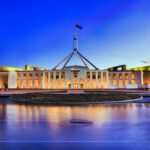Australian sports clubs join program to reduce gambling-related harm

Two hundred and eight clubs in the Victorian Amateur Football Association, Perth Football League, and Adelaide Footy League have joined a program addressing the problems associated with online sports gambling.
The Real Stakes was developed by the Victorian Amateur Football Association in February 2025 and has been running in-person workshops and webinars, which have attracted over 40,000 players, coaches, and volunteers.
The workshops feature discussions with responsible gambling experts, educational resources, and training sessions. This is reported to have led to a shift in attitude, with a recent survey of Australian football clubs showing that 70% now feel they wish to address problem gambling in their clubs.
The survey also found that 93% of community footballers in Perth, Adelaide, and Melbourne believe online sports gambling is negatively impacting lives, while 74% support a total ban on gambling advertising during sports broadcasts.
Deane Pieters, Chief Executive of program developer Elevate Strategic, cited an Australian Gambling Statistics report which revealed that Australians gamble AU$31.5 billion (US$20.4 billion)1 AUD = 0.6491 USD
2025-10-14Powered by CMG CurrenShift a year, the highest per capita compared to the rest of the world.
Pieters added, “Gambling for the sake of it has halved among coaches, volunteers and the board since the program’s implementation, telling us that leaders are changing their behaviour and that shift is rippling outward.”
Abi Bray brings strong researching skills to the forefront of all of her writing, whether it’s the newest slots, industry trends or the ever changing legislation across the U.S, Asia and Australia, she maintains a keen eye for detail and a passion for reporting.
Verticals:
Sectors:
Topics:
Dig Deeper
The Backstory
Grassroots push gains momentum
Community sport has become an early proving ground for Australia’s next phase of gambling reform. In February 2025 the Victorian Amateur Football Association launched The Real Stakes, a harm‑reduction program that quickly spread across codes and states. Today, two hundred and eight clubs in the Victorian Amateur Football Association, Perth Football League and Adelaide Footy League are participating, with in‑person workshops and webinars drawing more than 40,000 players, coaches and volunteers. The program’s reach and tone — peer‑led education, practical training, candid discussions with addiction specialists — are resonating at the club level, where coaches and team managers increasingly field questions from parents and juniors about betting ads and in‑app promotions.
Survey data reported by the program shows the cultural shift underway. Seventy percent of Australian football clubs say they want to address problem gambling internally, and 93 percent of community footballers across Perth, Adelaide and Melbourne believe online sports betting is harming lives. Nearly three in four support a total ban on gambling ads during sports broadcasts. As one club executive put it, cutting back “gambling for the sake of it” among leaders appears to be rippling through club culture. The figures echo national spending that remains world leading: Australians gamble roughly AU$31.5 billion a year, according to Australian Gambling Statistics, with losses per adult among the highest globally. The momentum among clubs, detailed in reporting on The Real Stakes rollout, is adding pressure for federal policy to match what communities say they are already trying to change.
A reform blueprint stalls in Canberra
That pressure traces back to a landmark 2023 inquiry. The bipartisan report “You Win Some, You Lose More” recommended 31 measures aimed at online gambling harm, including limits on advertising and stronger consumer protections. Two years later, advocates say the plan remains largely unimplemented. The government has banned credit cards for online betting and launched the BetStop self‑exclusion register, but critics argue the core of the blueprint — especially curbs on marketing and inducements — is still on ice. The frustration is captured in coverage of the federal delay, which cites concern from public health groups and reform advocates who warn that young people are being conditioned to see odds as part of sport.
The inquiry’s full findings, laid out by Parliament’s Social Policy and Legal Affairs Committee, underscore why the stakes are high. The committee urged a phased ban on online gambling advertising, new standards for platform design and a stronger enforcement framework, as detailed in the House committee’s report. Critics say inaction has given broadcasters, betting companies and codes more time to entrench ad‑driven revenue models. The public debate intensified again this year as campaigners argued that political caution is prolonging harm, a point sharpened in analysis of the political cost of delay. For the government, the calculus is not only public health and consumer protection but also the economics of sport: leagues have woven betting sponsorships and in‑game integrations into their commercial strategies, complicating any pivot away from ad dollars.
Evidence of rising harm
While policy has stalled, the data picture has darkened. The Australian Gambling Research Centre’s latest survey found gambling participation rose to 65 percent in 2024 from 57 percent in 2019, with lotteries and sports betting most common. Fifteen percent of respondents reported harm in the past year, up from 11 percent in 2019, including financial stress and skipping meals. High‑risk gambling affected 7.7 percent of regular gamblers and correlated with poor mental health and family violence. Young adults 18 to 24 were nearly twice as likely to be high risk, a trend researchers link to targeted advertising and the easy availability of betting apps. The findings, summarized in reporting on the AGRC study, add empirical weight to calls for tougher rules on marketing and product design.
Long‑running national reporting has tracked similar patterns. The Australian Institute of Health and Welfare frames gambling harm as a public health issue with financial and social costs that cascade into families and communities, as outlined in its overview of gambling in Australia. Against that backdrop, the community‑level backlash against ads around major codes looks less like moral panic and more like a rational response to measurable harm. The question for policymakers is whether incremental measures can bend the curve or whether the next step must mirror tobacco’s advertising playbook — a phased, comprehensive wind‑back of exposure, starting with sport.
Regulators test their teeth
Enforcement has become a second front. The Australian Communications and Media Authority issued a remedial direction to bookmaker ReadyBet after finding the company pushed 273 texts and app notifications to people enrolled in BetStop between August and December 2023 and failed to promote the register in 2,342 push notifications. The order, summarized in coverage of the ReadyBet action and detailed in the ACMA remedial direction, requires an external audit and mandatory staff training. Noncompliance could trigger civil penalties. The move followed an AU$4 million fine against Tabcorp on June 18, 2025 for breaching spam laws with more than 5,700 unlawful marketing messages and came with an order for an independent systems review.
These cases test whether existing law can deter recidivism or whether systemic fixes are needed. Self‑exclusion only works if operators prevent contact. Spam controls only work if compliance is embedded in product and marketing pipelines. The pattern regulators are surfacing — repeated lapses in consent management and duty‑of‑care processes — strengthens the argument inside government for firmer rules on data use, inducements and ad frequency, especially during live sport. For clubs and codes that argue education is enough, enforcement actions are a reminder that design and governance, not only awareness, determine outcomes.
Lessons from abroad
Other markets are moving in ways that may foreshadow Australia’s choices. In New Zealand, officials are pairing tighter oversight with culturally tailored prevention. A new campaign aimed at Māori and Pasifika communities — with ads titled “Their House Always Wins” and “The Game is Rigged, Don’t Get Played” — sits alongside a digital platform, Pātea, to help people pause and reflect on gambling behavior. The approach, described in coverage of the New Zealand initiative, acknowledges that online expansion and new casino licenses can widen harm unless mitigated by targeted public health messaging and accessible tools. It highlights how ad rules and education can be designed for communities most at risk.
South Korea offers another angle: coordinated action against illegal gambling and youth exposure. The Korea Sports Promotion Foundation was commended for consolidating prevention work across agencies, from distributing manuals on illegal sports betting to the military to hosting recovery camps and youth awareness drives. Policymakers there are responding to a spike in teen treatment cases and offenses tied to illegal betting, a trend captured in reporting on the foundation’s commendation. The takeaway for Australia is not to import policies wholesale but to recognize that cross‑agency coordination — education, treatment, policing and platform oversight — is most effective when it moves in step with market realities.
For Australia’s sports ecosystem, the through‑line across these stories is clear. Community clubs are changing norms faster than national policy. Evidence of harm is mounting, especially among young adults exposed to incessant odds. Regulators are escalating audits and fines but still confront platform design that prioritizes engagement over guardrails. Abroad, governments are tightening rules while investing in tailored prevention. The result is a narrowing window for Canberra to align advertising, enforcement and public health — before the culture shift underway at the grassroots forces a broader reset on its own.








